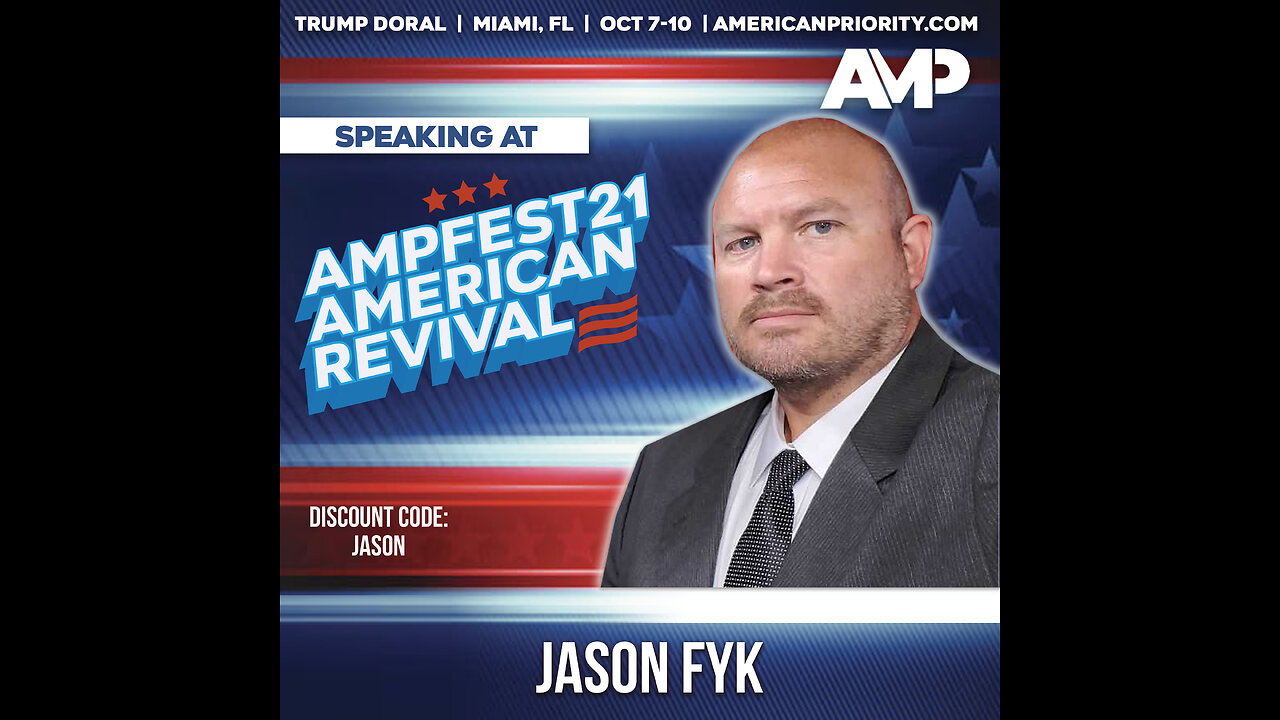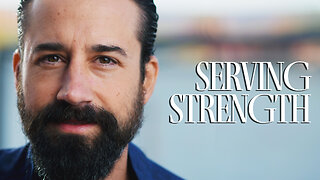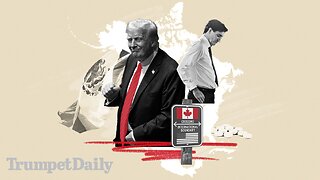Premium Only Content

AmpFest 2021 - Jason Fyk Explains the dangers of violating Section 230
The Online Freedom Act (OFA) is co-authored by David Morgan (a concerned citizen) and Jason Fyk (actively involved in Section 230 litigation and a concerned citizen). The OFA resolves every known problem that can be fixed within Section 230, at least constitutionally.
Fundamentally, Section 230 is a statutory delegation of regulatory authority granted to private entities.
An initial fact that must be considered is there is no legislation that can be enacted that will stop all online censorship or compel a website to host unwanted content!
However, the OFA would substantially disincentivize arbitrary censorship of lawful speech by limiting civil liability protection granted by the current Section 230.
Under the OFA, Section 230(c)(2) has been converted from “or otherwise objectionable” to now read “and is otherwise unlawful” emulating the prior categories of legally regulated speech (e.g., obscene, lewd, lascivious, filthy, excessively violent, harassing).
The OFA addresses the courts misapplication of 230(c)(1) which has rendered the “Good Faith” provisions of 230(c)(2) entirely superfluous. In a 2020 review of more than 500 Section 230 decisions over two decades, the Internet Association found only 19 that involved Section (c)(2).
In practice, “Good Faith” (c)(2) is not even being considered in content moderation cases. The Online Freedom Act clarifies the ambiguity of the statute and realigns it with Congress’ original purpose and function.
Another major concern with Section 230 is a Service Provider’s arbitrary and often self-motivated discretion. Self-interested private corporations are not subject to the same qualifications, procedural safeguards and legislative or judicial oversight that a public commission would normally be subjected to if it was delegated similar statutory authority.
The Online freedom Act establishes procedural safeguards in the form of a new obligations section. These obligations are voluntary by design but required if the platform seeks to maintain its liability protection. Put simply, if the provider or user wants protection, it must voluntarily act accordingly.
Section 230’s ambiguity has been exploited by big tech companies, at the detriment to all users, and the courts have been largely unable to control their actions. The Online Freedom Act reigns in their inconsistent behavior and offers protection in the strictest of circumstances.
The problem is clear – speech is precious – bold action is needed. Are you bold enough to act or are you afraid.
-
 29:19
29:19
PureSocialTV
1 year agoClay Clarks Reawaken America - Health & Freedom Tour - Tulsa Oklahoma 2021
98 -
 LIVE
LIVE
Producer Michael
13 hours agoI GOT PULLED OVER BY THE POLICE IN MIAMI!
337 watching -
 1:21:53
1:21:53
MTNTOUGH Fitness Lab
18 hours agoThe Fight That Almost Destroyed Jim Miller (& How He Overcame It) to Break UFC Records
597 -
 24:46
24:46
Cooking with Gruel
1 day agoFeeding Hope - LA Wildfire Relief from the People
1.07K6 -
 14:34
14:34
MichaelBisping
10 hours agoSean Strickland CONFRONTS Bisping! 'Pereira in Corner, Dricus and Khamzat!' (EXCLUSIVE INTERVIEW)
1622 -
 59:54
59:54
Trumpet Daily
17 hours ago $3.20 earnedThe Trade War Ends - Trumpet Daily | Feb. 4, 2025
4.14K7 -
 5:44
5:44
DropItLikeItsScott
10 hours agoA Must Have Shotgun - GARAYSAR Fear 116
442 -
 56:14
56:14
PMG
16 hours agoHannah Faulkner and John Strand | BLANKET PARDON FOR ALL J6er's
1.61K -
 48:51
48:51
State of the Second Podcast
13 hours agoWhy Does Palmetto State Armory Keep Winning?
1.57K2 -
 32:01
32:01
SB Mowing
25 days agoHer Tears Said It All: “My Prayers Have Been Answered”
21.6K34